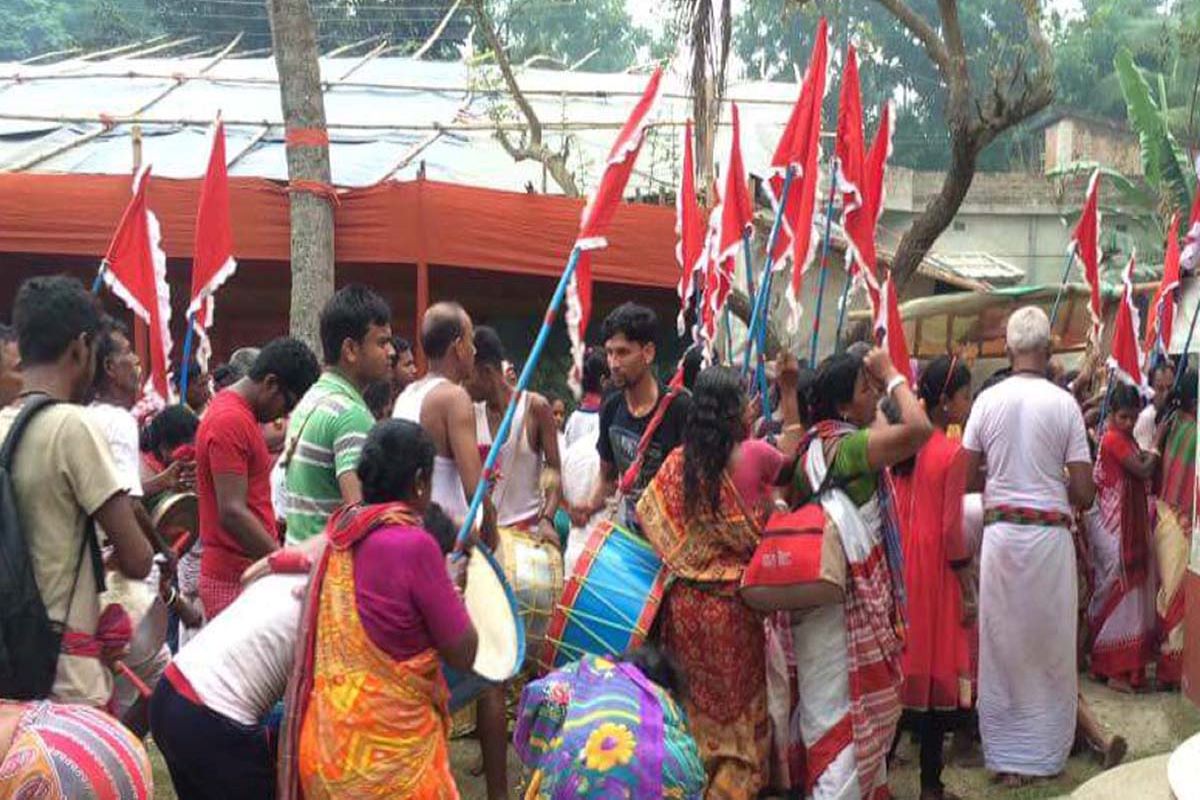In a significant development, the All India Matua MahaSangha (AIMMS) has announced to move away from the BJP and maintain a politically neutral stance in the present situation.
The five MLAs that represented the Matua community have even left the BJP MLAs WhatsApp group that might deepen the crisis within the party further. A statement issued by the AIMMS Sukhendra Gayen, said: “Matua Mahasangha will not support any particular political party. The Matuas have been deprived of their legitimate demands. Get prepared for the future. The Matuas also are capable of depriving”.The statement issued by gain triggered wide-ranging speculation about the communities shifting political lineage.
Advertisement
Shortly before the announcement, the five Matua MLAs left the WhatsApp group fuelling the rumours that they might change allegiance and join the Trinamool Congree camp. Though the Matua community officially announced that they are going to stay politically neutral, experts believe that it is just a gestation period before they switch loyalty.
Matua politics has always played a significant role in the state politics compelling major political leaders like Prime Minister Narendra Modi, Union Home Minister Amit Shah and Chief Minister Mamata Banerjee to reach out to them. The reason behind this is that the Matuas, who constitute almost 20 per cent of the population in West Bengal, have always been a deciding factor in state politics.
The Matua vote will be a deciding factor across 40-45 Assembly constituencies spread across several districts including the rural areas of North 24 parganas and in districts like in Barasat, Basirhat, Bangaon and in some areas of Nadia like Krishnanagar, Kalyani, Ranaghat. The differences between the BJP and the Matuas cropped after the saffron party failed to fulfill the promise made by them during the West Bengal Assembly polls earlier this year.
While the Modi-Shah duo played the refugee and citizenship card, the Matuas on the other hand overwhelmingly supported the saffron brigade both in the 2019 Lok Sabha elections and the 2021 Assembly polls. But experts are of the opinion that after six months, the Matuas have started to believe they have been deprived and the promises were not fulfilled.
Speaking to the media, Gayen said: “The Centre failed to meet our demands. We supported the BJP with high hopes. We had several demands, including unconditional citizenship but none of that has happened yet.” The Matuas strongly supported the Citizenship Amendment Bill (CAA) and National Register of Citizens (NRC) despite widespread condemnation of the two legislations.
In response to the announcement, state BJP President Sukanata Majumdar said: “We have spoken to the MLAs and the problem will be sorted out soon. We will speak to them. They have certain demands and we are working on the demands. We hope to solve the problem.”











